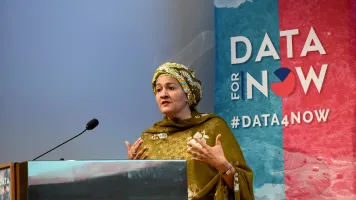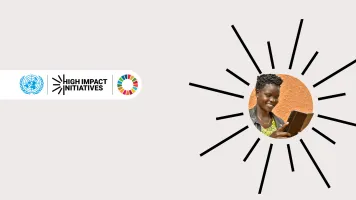The Global Partnership recently participated in the 56th session of the United Nations Statistical Commission (UN56SC) in New York from 4 to 7 March, 2025.
Our team took part in a number of side events on behalf of our joint initiatives and projects. In particular, our contributions this year centered around showcasing the potential of using administrative data as well as alternative data sources - such as citizen data and mobile phone data - alongside official statistics to provide better information for decision-makers and ensure that everyone’s needs are counted.
Our engagements also highlighted the power of partnerships in building strong, inclusive data ecosystems at the scale required to deliver enduring impact and change.
Partnership for impact: National Statistical Offices and the Copenhagen Framework on Citizen Data
Citizen contributions to data can help close critical gaps for groups that are often less visible in statistics, and are increasingly becoming recognized as a legitimate data source for inclusive decision-making.
Two years after initiating the development of the Copenhagen Framework on Citizen Data, a new version has been published by the Collaborative on Citizen Data, reflecting a year of extensive consultations.
At a side event at UN56SC, organized by the Collaborative on Citizen Data, the latest updates were presented and discussed, particularly the integration of National Statistical Offices (NSOs) into citizen data processes.
Papa Seck, the Chief of UN Women’s Research and Data section, highlighted the growing role of NSOs in working with citizen data, emphasizing the need for innovative approaches that maintain both trust and accountability. As more countries recognize the value of citizen data, integrating it into NSO activities is becoming a natural extension of broader data governance efforts.
Piedad Urdinola, Director of Colombia's NSO, Departamento Administrativo Nacional de Estadística (DANE), stressed the importance of managing expectations when engaging citizens in data production. Often, those contributing data have high hopes for how it will be used, and the Copenhagen Framework is helping to facilitate these conversations, making collaboration more effective.
Professor Samuel Kobina Annim, Chief Statistician Ghana Statistical Service, pointed out that mobilizing resources is crucial, and that citizen data could help secure funding in an era of financial constraints.
The Global Partnership’s Karen Bett reinforced the need to take a holistic view of the entire data value chain, from collection to use, enabling data to flow efficiently at every stage. This is key to maximizing its impact, ensuring it serves the communities it represents.
Sharing reflections from the funder point of view, Chris Maloney from Hewlett highlighted two key reasons why citizen data is valuable. First, it helps bridge critical data gaps, providing essential insights where official statistics may be lacking. Second, it fosters trust between citizens and National Statistical Offices (NSOs), strengthening the credibility and inclusiveness of data systems. Given the recent rapid advancements in this field, citizen data presents a significant opportunity to enhance decision-making and drive impactful change.
Later at UN56SC, another significant milestone was reached when the Commission endorsed the Copenhagen Framework, representing a further step forward in strengthening partnerships between NSOs and communities. The Commission also noted the request to include Citizen Data as a standing agenda item at the UN Statistical Commission every two years, ensuring continued dialogue and progress on this important topic. If confirmed, this will be a huge milestone for Citizen Data as an area of focus.
Find the revised Copenhagen Framework on Citizen Data here.
Unlocking the potential of mobile phone data for official statistics: Practical guidance for National Statistical Offices
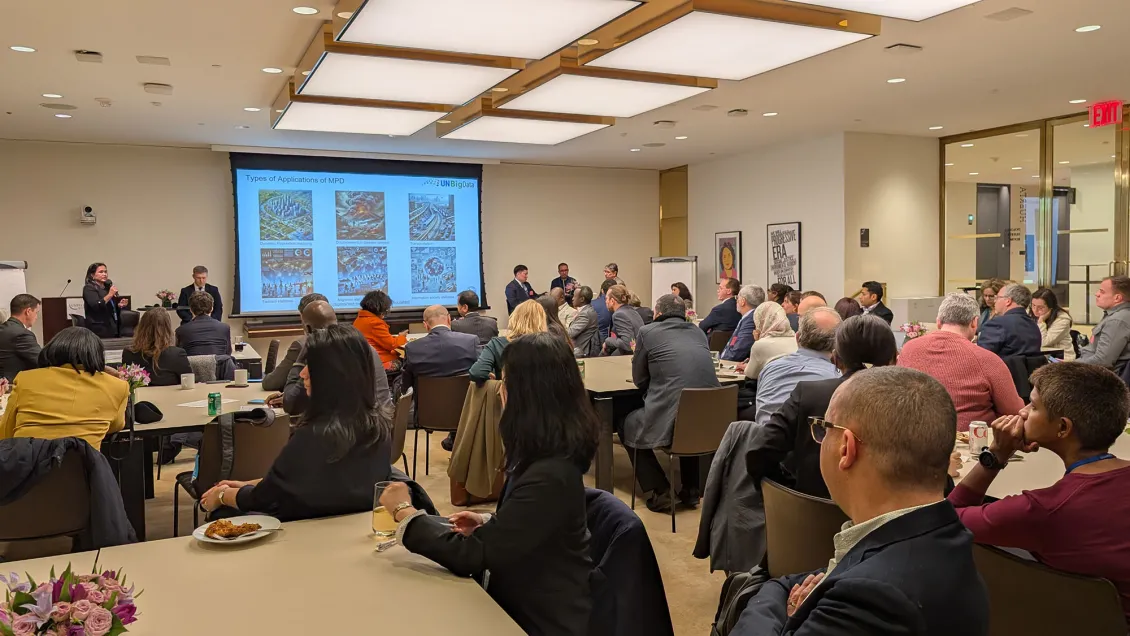
As mobile phone data becomes an increasingly valuable resource for NSOs, experts from around the world are pioneering innovative ways to harness its potential for official statistics.
From building capacity and developing methodologies to overcoming challenges in data access and integration, this side event at UNSC highlighted how countries are leveraging mobile data to enhance policymaking, improve public services, and modernize statistical systems.
This event was organized by the UN-CEBT Task Team on Mobile Phone Data, including the International Telecommunication Union, the World Bank, Flowminder, and the Global Partnership for Sustainable Development Data.
Erki Saluveer, Director at Positium, said: “Mobile phone data is so powerful because it consists of just three attributes—ID, time, and location. Yet from these, we can generate population statistics, mobility trends, and even temporary population estimates.
“Digging into the data you start uncovering stories—insights that wouldn’t have been revealed through traditional statistics.”
Marcio Pochmann, President of the Brazilian Institute of Geography and Statistics (IBGE), added: “National statistical institutes face increasing challenges—financial constraints, declining survey response rates, and a growing demand for more timely and granular data. A promising solution is integrating alternative data sources, particularly mobile phone data, to complement traditional statistics.
“Mobile phone data reduces the burden on respondents, allowing us to obtain valuable insights without disrupting the population, while significantly cutting the time and cost of data collection.”
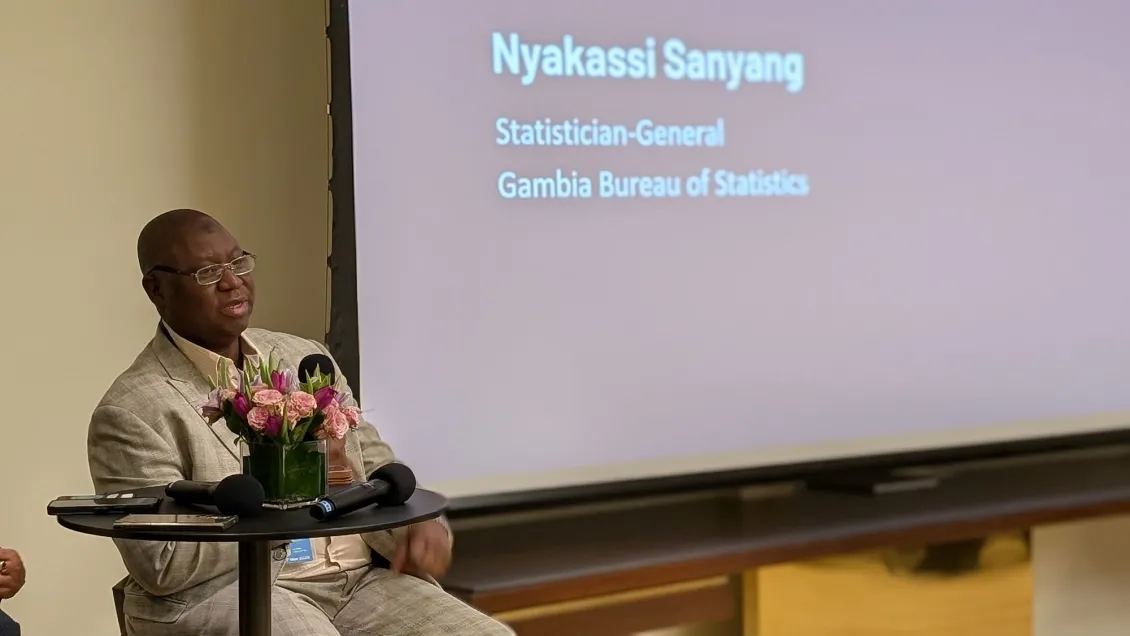
Nyakassi Sanyang, Statistician General at Gambia Bureau of Statistics, added that mobile phone data offers timely insights that can inform policymaking in a wide range of areas.
He said: “Mobile phone data expands the data ecosystem beyond traditional surveys and census, providing high-resolution, high-frequency insights into population movement.
“In Gambia, mobile phone data supports food security policies, tracks agricultural activities, and helps assess climate change impacts in real time, ensuring more effective decision-making.”
However, Pochmann stressed that clear guidance is needed to make the most of mobile network data for statistical purposes.
“Despite its promise, mobile phone data is not yet fully integrated into the routine production of official statistics. Overcoming this challenge requires clear policies, secure data-sharing agreements, and stronger collaboration between governments, mobile operators, and statistical institutions.”
To explore practical guidance on accessing and using mobile network data for official statistics, check out the Roadmap for Accessing Mobile Network Data for Statistics.
Power of Data: Progress report and next steps
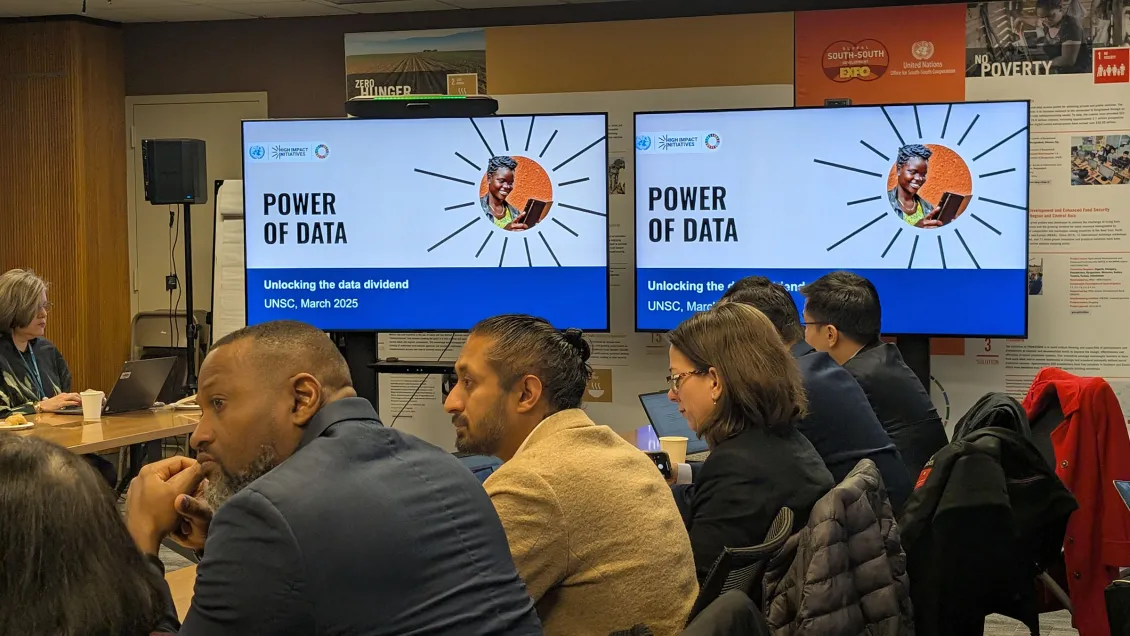
The Power of Data initiative continues to gain momentum, bringing together governments, development partners, civil society and private sector actors to strengthen national data systems.
A roundtable discussion during UNSC this month provided a frank and forward-looking assessment of the initiative’s progress, challenges, and opportunities. The event was facilitated by the Power of Data co-leads, UNDP, UNFPA, UNICEF, UNDESA, CCS-UN and the Global Partnership for Sustainable Development Data.
Some of the key takeaways from the roundtable included:
Bridging fragmentation and aligning investments
Funding for data systems remains insufficient and fragmented, and many countries experience duplication of efforts and uncoordinated investments. The Power of Data offers an umbrella to align initiatives and maximize impact, but more coordination among donors, governments, and global partners is needed.
Institutionalizing data systems for long-term impact
Political leadership is transformative, and the Power of Data has succeeded in mobilizing political support to prioritize data systems. But government changes often disrupt long-term data initiatives. The conversation highlighted the need to institutionalize Power of Data efforts to ensure continuity beyond election cycles. With the support of the UN Resident Coordinator, the UN Country Team and the World Bank, engaging high-level government officials and key ministries such as finance, planning and development is crucial to embed data-driven decision-making in governance structures.
Multi-stakeholder collaboration
The initiative has enabled governments to improve engagement with development partners, regional organizations, and UN bodies. Countries highlighted the importance of leveraging diverse stakeholders across the data ecosystem, including citizens, businesses, and civil society.
The role of AI and emerging technologies
Artificial intelligence presents both opportunities and threats for data governance. Discussions emphasized the need for trust in data systems, ethical AI frameworks, and capacity-building efforts to help governments harness AI responsibly while avoiding misuse.
The Power of Data Initiative is a global platform for action, with growing political momentum and commitments. The coming years will focus on deepening collaboration, improving financial sustainability, and driving real-world impact through strengthened national data systems.
Read more about the Power of Data and how to get involved here.
Leveraging administrative data for statistical production: New tools from the Collaborative on Administrative Data
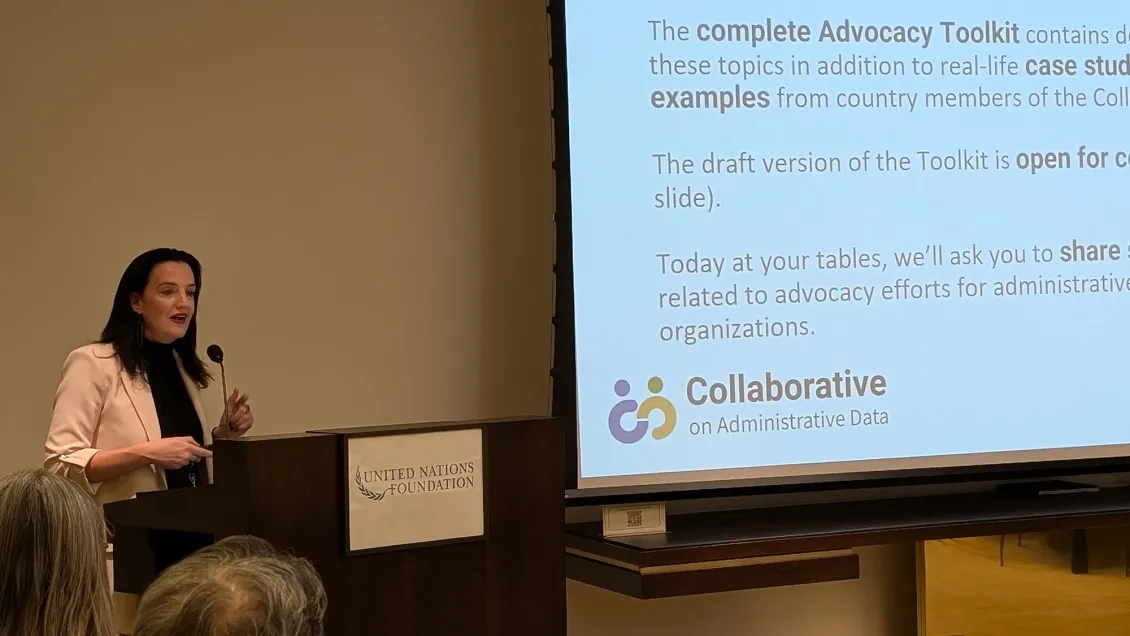
The Collaborative on Administrative Data’s side event during UNSC reinforced the critical role of administrative data in shaping evidence-based policymaking and sustainable development.
The session provided reflections on the journey of the Collaborative, co-led by the Global Partnership for Sustainable Development Data, UN Statistics Division (UNSD), and UN Women, highlighting its growth and increasing relevance in addressing persistent data gaps.
Papa Seck, who leads UN Women's Research and Data section, opened the event by noting that “Administrative data used to be a luxury, but now it is a necessity” for statistical offices.
A central focus of the event was the range of practical toolkits developed to help governments and institutions make better use of administrative data.
These resources will be available on the Global Partnership website soon. Sign up to our newsletter for updates.
Data for Now: Meeting priority information needs through collaboration and innovation to inform national decision-making
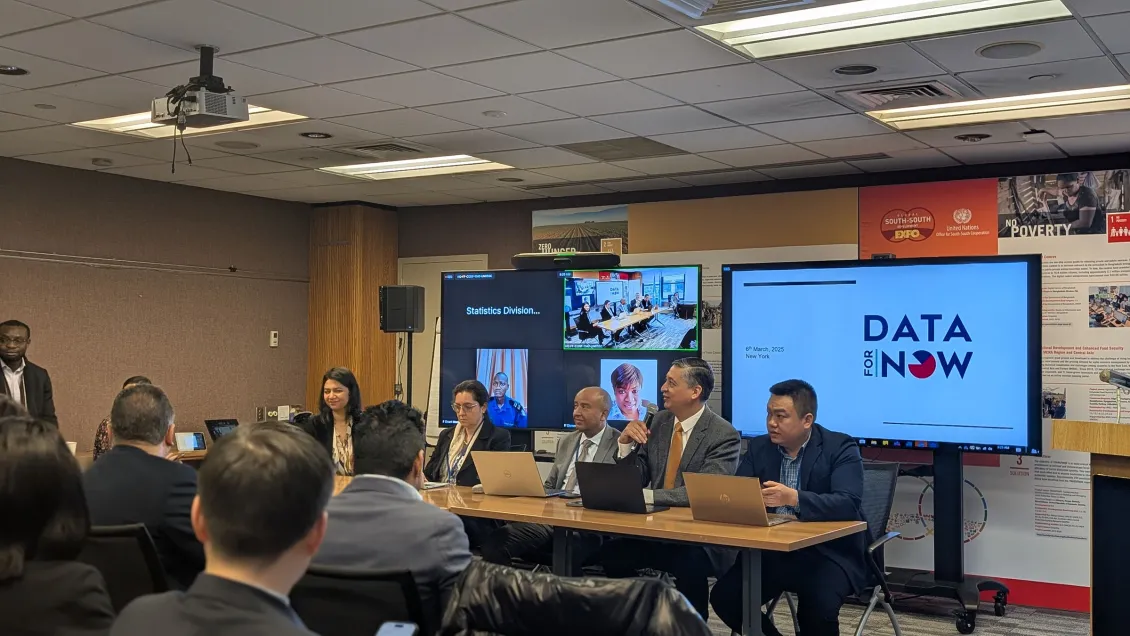
The Data for Now side event at UNSC brought together experts, policymakers, and data practitioners to discuss the role of data in driving sustainable development, with a focus on bridging data gaps, leveraging AI and digital technologies, and strengthening partnerships.
Speakers highlighted the urgency of improving data availability, at a time when only 17 percent of SDG targets are currently on track, with many countries lacking access to reliable data for effective decision-making.
Panelists shared country-specific experiences, showcasing innovations in urban planning, water management, migration analysis, and crime prevention through data-driven approaches. Collaboration emerged as a recurring theme, with participants emphasizing the importance of cross-sector partnerships, capacity building, and investment in national statistical systems to ensure data can be effectively used for decision-making.
The event concluded with a call to action for continued collaboration, knowledge sharing, and investment in data infrastructure to support evidence-based policymaking and accelerate progress toward the SDGs.


